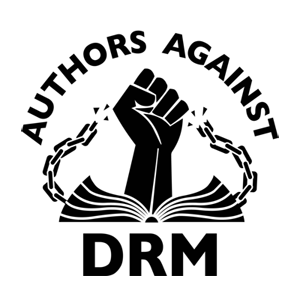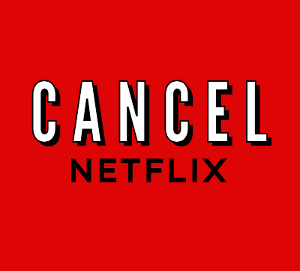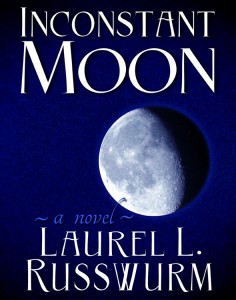Reading about the early history of printing in the 15th century but I keep getting distracted and giggling because the guy who succeeded the famous William Caxton after he introduced the printing press to England was called Wynkyn de Worde. Wynkyn de Worde! And he was a printer/publisher! There seems to be some debate about the name’s origin and he might actually have been John/Johannes/Jan Wynkyn but, still, what a fantastically appropiate name!
Category: publishing
Crowdsourced Proofreading
In spite of armies of editors and proof readers, main stream publishing has a long history of published typos. And as a writer I can tell you, it’s really easy to miss something, especially in something as substantial as an article or a book. Even if you know how to spell.
Even when a mistakes were caught, it wasn’t reasonable to assume publishers would recall books and reissue them with corrections. Errors wouldn’t be fixed until the second edition. If there was a second edition.
One of the most earth shattering things to happen to the world of proof readers was our move into the digital age with the invention of the spell checker. Suddenly proof readers became obsolete.
But all spell checkers are not equal. When the typo is a real word, no spell checker is going to flag it. The thing we often forget about technology is that it is no more perfect than any other tool; human supervision is still required.
Wikipedia is the poster child for self publishing. Not only does it rely on the good will of the public to add articles and factual information, if errors are made, Wikipedia is self-correcting: the public has the power to correct errors and ommissions, whether of fact or spelling.
All those mainstream publishers who no longer employ enough staff to adequately proof read their content are publishing online in digital formats. Instead of hiring proofreaders, they often have a “report typo” option on their webspage so readers can catch their mistakes for them. Just as CBC does.
This way, when a reader gets hit between the eyes by an annoying typo, we can report it, so others won’t have to suffer as we have.
When I found a typo in the CBC article Chippewas of the Thames vow to continue pipeline fight good neighbor that I am, I decided to let CBC know so the error could be fixed.
So I clicked on the link— it should be easy, right? But it seems CBC isn’t as interested in being told about typos as it is interested in getting personal information about anyone who wants to correct a typo.
This isn’t a news issue, or even a matter of opinion. If I point out the author probably didn’t mean the word “pit,” it doesn’t matter who I am or where I live. I could be living in Iceland and it would still be a typo. Either I’m right or I’m wrong.
Something that ought to take a minute and cost me nothing but a bit of time I was willing to spend, ended up costing me privacy.
There is no need for it, but this has become a prevalent practice online. Our personal information has become a valuable commodity that companies want for themselves, and very often to sell.
If you’ve ever wondered why you get spam, this is why. (I know someone who gave up an email account because he got so much spam.)
We need to stop giving our personal details to companies who have no legitimate need of them.
If you’re buying something that needs to be delivered, sure, you have to give your address. But if you’re making a donation to a political party and they want to be able to connect with you, they will need an address, a phone number, or an email address— but not all three. If you’re leaving a comment or signing a petition, they want to make sure you’re a real person, not a bot.
Companies want it all; whether they need it or not. If you give it to them, when you tell them to stop phoning you, they can send you junkmail or spam. If CBC or any person or company tells you information they have no right to is “required” the correct answer is “none of your business.”
Privacy is an important part of personal security; don’t give up any more than you have to.
Copyright, Fair Dealing and Paywalls
Copyright, Fair Dealing and Paywalls

When the paywall “protected” Blacklock’s Reporter sued the Government of Canada for an alleged copyright violation, the court concluded:
[8] Any reporter with the barest understanding of copyright law could not have reasonably concluded that the Department’s limited use of the subject news articles represented a copyright infringement. Indeed, the fair dealing protection afforded by section 29 of…
Copyright, Fair Dealing and Paywalls
When the paywall “protected” Blacklock’s Reporter sued the Government of Canada for an alleged copyright violation, the court concluded:
[8] Any reporter with the barest understanding of copyright law could not have reasonably concluded that the Department’s limited use of the subject news articles represented a copyright infringement. Indeed, the fair dealing protection afforded by section 29 of the Copyright Act, RSC, 1985, c C-42, is so obviously applicable to the acknowledged facts of this case that the litigation should never have been commenced let alone carried to trial.
— The Honourable Mr. Justice Barnes, Blacklock’s Cost Award 20161221125911759
Howard Knopf summarizes the lawsuit thusly:
“The Attorney General of Canada has achieved a clear victory against Blacklock’s Reporter in the latter’s attempt to collect damages of $17,209.10 based upon its supposed institutional subscription rate because a few public servants in the Department of Finance received, read and distributed two Blacklock’s articles about a file they were closely involved in that had been sent to them by a Blacklock’s subscriber.”
 Copyright law in Canada is at minimum confusing to most non-lawyers, even those of us involved in content creation. As a self publishing author, and to some extent a citizen journalist, it is important that I have more than the barest understanding of copyright law. Like most self publishing bloggers lacking legal staff, I’d rather be writing than spending time in court, so when in doubt I’m inclined to self censor for my own protection, something known as copyright chill. Since I’ve been actively weighing copyright law as it applies to me and my own work (since Canada’s 2010 Copyright Consultation), I am always interested in how copyright issues play out.
Copyright law in Canada is at minimum confusing to most non-lawyers, even those of us involved in content creation. As a self publishing author, and to some extent a citizen journalist, it is important that I have more than the barest understanding of copyright law. Like most self publishing bloggers lacking legal staff, I’d rather be writing than spending time in court, so when in doubt I’m inclined to self censor for my own protection, something known as copyright chill. Since I’ve been actively weighing copyright law as it applies to me and my own work (since Canada’s 2010 Copyright Consultation), I am always interested in how copyright issues play out.
So I was particularly curious about what Justice Robert Barnes described as the “obviously applicable” fair dealing protection.
(j) What occurred here was no more than the simple act of reading by persons with an immediate interest in the material. The act of reading, by itself, is an exercise that will almost always constitute fair dealing even when it is carried out solely for personal enlightenment or entertainment;
— The Honourable Mr. Justice Barnes’ Judgement and Reasons
re: BLACKLOCK’S REPORTER (Plaintiff) and CANADA (Defendant) [download PDF]
In other words reading (or by extension viewing, or listening to) copyrighted material is allowed under Canada’s Fair Dealing provisions, even when such material is locked behind a paywall. Sharing such material is another matter. A large part of the reason the subscriber who shared the articles was not held liable seems to be Blacklock’s failure to adequately spell out in its terms of service what a subscription does or does not allow. Although the judgement draws attention to the fact:
(k) While the public interest is served by the vigilance of the press, copyright should not be a device that serves to protect the press from accountability for its errors and omissions. The Department had a legitimate interest in reading the articles with a view to holding Blacklock’s to account for its questionable reporting.
— The Honourable Mr. Justice Barnes’ Judgement and Reasons
re: BLACKLOCK’S REPORTER (Plaintiff) and CANADA (Defendant) [download PDF]
Excess Copyright tells us:
“…the amount claimed by the Government, which was “$115,702.30, based on 70% of the actual value of professional hours expended in the defence of the claim and including disbursements of $7,020.98.”
Although Mr. Knopf views this as a victory, from my perspective it’s not.
Although I am not a lawyer, there seems to be a suggestion that, had the TOS been worded differently, the subscriber’s decision to share the articles– in spite of holding the publisher to account– such an action may well have been construed as illegal copyright infringement, specifically circumventing Technical Protections Management (TPM). The plaintiff sought to make this latter argument, but the Judge didn’t allow it.
To my mind, the biggest problem with copyright law is the court system. Fighting a copyright claim in court wouldn’t only eat into an independent creator’s time, if it costs $115,702.30, $65,000 or even the two thousand dollar settlement the Government offered would be beyond the means of most.

It doesn’t matter whether a copyright infringement lawsuit has merit or is spurious. The Government of Canada may have the wherewithal to fight such matters in court, but this is hardly true for the vast majority of citizen journalists, self publishers or bloggers. Because copyright battles are fought through the legal system, creators, bloggers and self publishers are at an enormous disadvantage to large well funded multinationals or copyright trolls with predatory business models.
There are some websites I access that are partially locked behind paywalls, but publish some articles publicly. I decided a long time ago I don’t want to share links to sites that are locked behind paywalls, or even registration walls, because I don’t want to compel my readers to have to sacrifice their money or privacy to be informed. Because of this, I have made it a point not to subscribe to any paywalled site, simply to ensure I don’t share such links inadvertently. But now I am wondering, are subscribers aware that sharing information — perhaps even in a quotation — from such sites risks charges of copyright infringement? If so, it is surely a disincentive to subscriptions.
Nice To Be Back
 Digital technology is fabulous, but is also incredibly fragile. We had a catastrophic system breakdown a while back, and it’s taken until now to get this site restored and up and running.
Digital technology is fabulous, but is also incredibly fragile. We had a catastrophic system breakdown a while back, and it’s taken until now to get this site restored and up and running.
Although fiction will always be the raison d’être for Libreleft Books, at this point we are considering a foray into political nonfiction.
Libreleft’s most important task is getting “The Girl In the Blue Flame Cafe” back on track.
Publishing DRM-Free

Although I’ve always understood censorship to be a bad thing, like everyone else — particularly other creators — I grew up believing copyright was beneficial for authors and culture. It is only in recent years, as copyright maximalists have successfully lobbied for copyright terms extending into the realm of the ridiculous that that I’ve come to understand just how harmful copyright law actually is, both for people and our culture.
Free thought and free speech are incredibly important for human beings. When writers dare not reference our own culture for fear of legal copyright repercussions, “copyright chill” leads to self censorship, which serves only to stunt our culture.
So much of our culture is shared in digital formats these days that the mainstream media industry developed and embraced “digital locks” in order to “protect” its investment in the media content it distributes. Copyright law calls them “”Technological Protection Measures” (TPMs), but these measures used to control how we humans use our media an devices are commonly known as “DRM.”
To those employing digital locks, DRM means “Digital Rights Management,” because these producers, publishers, manufacturers and distributors are managing their intellectual property rights on the property they continue to control, even after we have purchased it.
To the rest of us, DRM is effectively “Digital Restrictions Management,”and what is being managed is us.
What is Digital Restrictions Management?
Digital Restrictions Management is technology that controls what you can do with the digital media and devices you own. When a program doesn’t let you share a song, read an ebook on another device, or play a single-player game without an internet connection, you are being restricted by DRM. In other words, DRM creates a damaged good. It prevents you from doing what would normally be possible if it wasn’t there, and this is creating a dangerous situation for freedom, privacy and censorship…
DRM gives media and technology companies the ultimate control over every aspect of what people can do with their media: where they can use it, on what devices, using what apps, for how long, and any other conditions the retailer wants to set. Digital media has many advantages over traditional analog media, but DRM attempts to make every possible use of digital goods something that must be granted permission for. This concentrates all power over the distribution of media into the hands of a few companies. For example, DRM gives ebook sellers the power to remotely delete all copies of a book, to keep track of what books readers are interested in and, with some software, even what notes they take in their books.
So it is no surprise that many mainstream publishing houses have embraced DRM, and early digital self publishing platforms required DRM. But authors and readers pushed back, and so today many independent authors and self publishers can choose to say “No” to DRM, when publishing.
In common with the rest of the mainstream media, traditional publishing houses are eager to reap the benefits of the new digital technology, while employing DRM in an attempt to turn back the hands of time and deny the benefits of digital innovation to every one else. Clinging to their outmoded business model, and worse, attempting to impose it on today’s digital world, is very likely not going to end well for these corporate entities, as suggested by the npr article, E-Books Strain Relations Beween Libraries, Publishing Houses
Libreleft Books are published DRM free
Like most self publishers, Libreleft publishes in as many formats and markets as possible, so it is possible that DRM may be applied without my my knowledge. In the event you purchase Inconstant Moon or any future Libreleft publication and find it is encumbered with DRM, Libreleft Books guarantees to replace it with DRM free copy.
One of the things I’ve been learning about in my self publishing adventure is DRM. We all encounter DRM every day in our digital world, but most of us don’t recognize it. There are no warning labels, so even if we know what DRM is, we have no way of knowing if it is even present. When our digital media or devices don’t work, it doesn’t occur to us that the manufacturer or publisher deliberately degraded their products with DRM.
I’ve written a fair bit about the dangers of DRM, and much of my opposition to Canada’s new copyright law was because it made DRM supreme. Following the lead (and substantial pressure from) the American Government, Canada and the UK have passed copyright legislation making it illegal to circumvent DRM — even to access material to which we are legally entitled. Such legislation makes it illegal to play a legally purchased DVD on a computer with a free software operating system, or to listen to, watch or read freely licensed or public domain books, music or movies on devices and platforms that employ DRM to prevent it.
Although Kindle reading devices are themselves encumbered with DRM, I decided that my debut novel, “Inconstant Moon” is not. My self-publishing imprint, Libreleft Books, will continue to publish this and all future offerings DRM-free. Readers are free to safely back-up their Libreleft books elsewhere. As well, you are free to use Calibre to convert your Libreleft Kindle eBook file to any other format.
In Amazon’s product details section, DRM-Free eBooks are identified by: “Simultaneous Device Usage: Unlimited” so you can check to see if the e-book you are buying is DRMed.
[Caution: Since Amazon retains the legal right to access your Kindle, for your own protection, all your ebooks should be backed up elsewhere, just as all digital files you have an interest in keeping should always be backed up on different media or devices.]
Libreleft Books does not and will never digitally lock up any books with DRM (or TPMs).
Which is why I am proud to have Libreleft Books listed in “The Guide to DRM-Free Living” in the Literature: Individual Authors and Books section. The Guide is published by Defective by Design, a campaign of the Free Software Foundation
Self Publishers can choose to publish DRM-Free because it gives us the freedom to choose.
More on DRM
For more information about DRM and how to avoid it, read the Guide to DRM-Free Living.
TechDirt: Nina Paley “Librarians And Readers Against DRM [Updated]”
From Publisher’s Weekly, “A Whip to Beat Us With” by Cory Doctorow on the perils of DRM (also known as TPMs)
Author Culture “Authors Against DRM” by Tommie Lyn
Disruptive Conversations: As An Author, Why I Truly Hate Ebook DRM
Teleread: It is Now Illegal to Break DRM on E-Books in Canada!
Digital Copyright Canada: Russell McOrmond on DRM
interweb freedom: DAY against DRM: Video
Laurel L. Russwurm: These Boots Aren’t Made for Walkin’
Laurel L. Russwurm: C-11 ~ Criminalizes TPM circumvention without Warning Canadians
Defective By Design: #CancelNetflix: Arrested Development isn’t the only thing they screwed up
EFF’s Formal Objection to the HTML WG Draft Charter
laurel L. Russwurm: Tell the W3C “No DRM”
Cory Doctorow: What I wish Tim Berners-Lee understood about DRM

!["process that you pit in place" presumably should be "put" NOTE: Presumably you want to crowd source your proofreading. That means you seek help from people like me who are willing to take the time to notify you when CBC publishes an error. That's reasonable. What is NOT reasonable is that CBC *requires* people who are willing to HELP CBC (gratis) to turn over personal information. Name: [Required] Email address: [Required] City, Province and Country: [Required] In other words, we are not only doing work you really ought to be paying professional proof readers to do for free, and are required to pay for the privilege with our personal data. Which is why I'm not doing this again.](https://laurelrusswurm.files.wordpress.com/2017/07/required.png?w=700)

